Volume 38, Issue 1
Displaying 1-6 of 6 articles from this issue
- |<
- <
- 1
- >
- >|
Review
-
2020 Volume 38 Issue 1 Pages 1-7
Published: 2020
Released on J-STAGE: March 26, 2020
Download PDF (871K)
Clinical Note
-
2020 Volume 38 Issue 1 Pages 9-12
Published: 2020
Released on J-STAGE: March 26, 2020
Download PDF (2195K) -
2020 Volume 38 Issue 1 Pages 13-16
Published: 2020
Released on J-STAGE: March 26, 2020
Download PDF (1385K) -
2020 Volume 38 Issue 1 Pages 17-20
Published: 2020
Released on J-STAGE: March 26, 2020
Download PDF (909K) -
2020 Volume 38 Issue 1 Pages 21-24
Published: 2020
Released on J-STAGE: March 26, 2020
Download PDF (850K) -
2020 Volume 38 Issue 1 Pages 25-27
Published: 2020
Released on J-STAGE: March 26, 2020
Download PDF (3148K)
- |<
- <
- 1
- >
- >|
